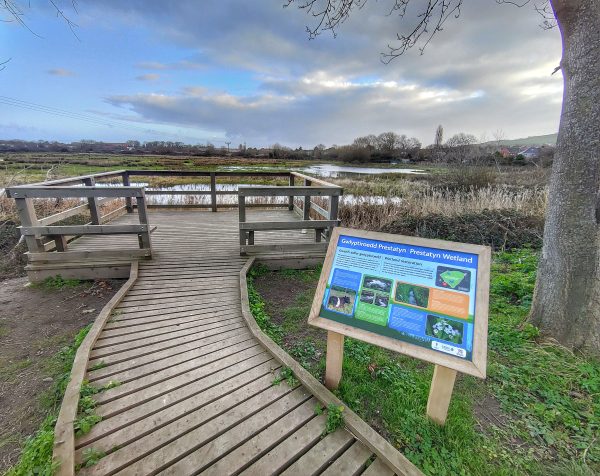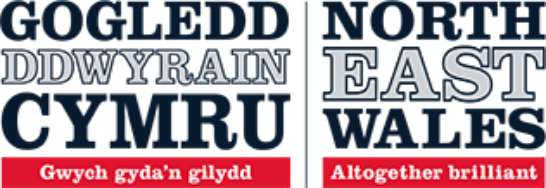A feathered favourite has been spotted at Morfa wetland
A feathered favourite has arrived at a developing Denbighshire wetland.
Last week we celebrated World Wetlands Day which encourages the revival and restoration of degraded wetlands.
The campaign also supports the regeneration of these important areas to encourage more wildlife to return and one such area seeing revival is located at Prestatyn.
Work on the Morfa, a 35-acre wetland in Prestatyn started in 2020 when it was purchased by Denbighshire County Council after securing welsh Government funding to protect its status as a natural wetland resource. Three ponds were created on the site to expand the support for the wetland’s nature.

The benefits of this include increased biodiversity, flora and birds and a wetland attraction for bird watchers to visit from three viewing platforms each with an interpretation board about the area it looks out on.
Sitting next to the Prestatyn gutter, the wetlands forms a natural sink during times of high rainfall, acting as an important flood defence.
And now a birdwatcher’s favourite has been spotted enjoying the delights of the area along with other species including Egrets and Mallards.
Countryside Ranger Sasha Taylor, who looks after the site, explained: “It’s a fantastic habitat for lots of different bird species and other animals as well. We have had some Snipe and a member of the local environmental group actually saw a Kingfisher here which is fantastic. The smaller birds also love the little Willow trees in the middle, it’s always busy in there.
“We have got some lovely new interpretation boards which explain the benefits of having this wetland system. They explain all about carbon storage and how beneficial it is for climate change.”
An endangered UK animal has also been spotted nearby the wetlands and work to help it thrive in the area will see development of water drainage ditches to provide a stronger habitat for it.
Sasha added: “With our volunteer group there is a lot of people who do spend a lot of time here and a lot of them have also caught pictures of Water Voles along the nearby cut.”
The Council is continuing to use Belted Galloway cattle to graze the area and support site management and these are due to be back on the wetlands during the summer.

